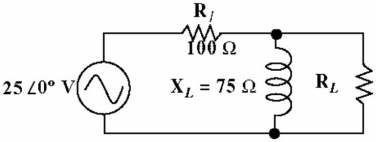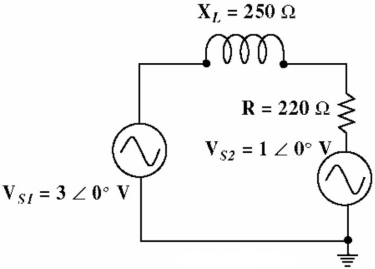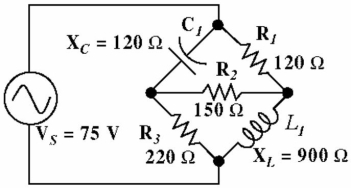Deck 19: Circuit Theorems in Ac Analysis
Question
Question
Question
Question
Question
Question
Question
Question
Question
Question
Question
Question
Question
Question
Question
Question
Question
Question
Question
Question
Question
Question
Question
Question
Question
Question
Question
Question
Question
Question
Question
Question
Question

Unlock Deck
Sign up to unlock the cards in this deck!
Unlock Deck
Unlock Deck
1/33
Play
Full screen (f)
Deck 19: Circuit Theorems in Ac Analysis
1
The superposition theorem is useful for the analysis only in ac circuits.
False
2
The Norton's equivalent circuit is characterized by the:
A) equivalent voltage source in parallel with an equivalent impedance
B) equivalent voltage source in series with an equivalent impedance
C) equivalent current source in parallel with an equivalent impedance
D) equivalent current source in series with an equivalent impedance
A) equivalent voltage source in parallel with an equivalent impedance
B) equivalent voltage source in series with an equivalent impedance
C) equivalent current source in parallel with an equivalent impedance
D) equivalent current source in series with an equivalent impedance
equivalent current source in parallel with an equivalent impedance
3
The superposition theorem is useful for the analysis of multiple source circuits.
True
4
Why is the superposition theorem useful in the analysis of multiple-source circuits?
A) because all sources are openend
B) because all sources are shorted out
C) the circuit can be analyzed one source at a time
D) because only Ohm's law is required
A) because all sources are openend
B) because all sources are shorted out
C) the circuit can be analyzed one source at a time
D) because only Ohm's law is required

Unlock Deck
Unlock for access to all 33 flashcards in this deck.
Unlock Deck
k this deck
5
Maximum power transfer occurs when the ac impedances are:
A) smaller
B) equal
C) larger
D) complex conjugates
A) smaller
B) equal
C) larger
D) complex conjugates

Unlock Deck
Unlock for access to all 33 flashcards in this deck.
Unlock Deck
k this deck
6
If two equal currents are in opposing directions at any instant in time, in a given branch, what is the net current at that instant?
A) 1 A
B) zero
C) the complex conjugate of the two
D) their sum
A) 1 A
B) zero
C) the complex conjugate of the two
D) their sum

Unlock Deck
Unlock for access to all 33 flashcards in this deck.
Unlock Deck
k this deck
7
Norton's theorem provides a method for the reduction of any ac circuit to an equivalent form consisting of an equivalent current source in parallel with an equivalent impedance.

Unlock Deck
Unlock for access to all 33 flashcards in this deck.
Unlock Deck
k this deck
8
Maximum power is transferred to a load when the load impedance is a complex conjugate of the output impedance of the driving circuit.

Unlock Deck
Unlock for access to all 33 flashcards in this deck.
Unlock Deck
k this deck
9
In order to get maximum power transfer from a capacitive source, the load must have an impedance that is the complex conjugate of the source impedance.

Unlock Deck
Unlock for access to all 33 flashcards in this deck.
Unlock Deck
k this deck
10
Thevenin's equivalent circuit is the transformation of Norton's equivalent circuit.

Unlock Deck
Unlock for access to all 33 flashcards in this deck.
Unlock Deck
k this deck
11

find the Thevenin impedance Zth).
A) 74.1 246.9° Ω
B) 54.3 247.2° Ω
C) 60 253.1° Ω
D) 44.7 263.4° Ω

Unlock Deck
Unlock for access to all 33 flashcards in this deck.
Unlock Deck
k this deck
12
 Figure 19-2
Figure 19-2Given the circuit in Figure 19-2, find the total current in the load RL).
A) 3.39 247° mA on a dc level of 8 mA
B) 4 mA
C) 1.69 247.3° mA
D) 5.69 247° mA

Unlock Deck
Unlock for access to all 33 flashcards in this deck.
Unlock Deck
k this deck
13
 Figure 19-1
Figure 19-1Given the circuit in Figure 19-1, find the total circuit current.
A) 12 mA
B) 9 mA
C) 18.2 mA
D) 6 mA

Unlock Deck
Unlock for access to all 33 flashcards in this deck.
Unlock Deck
k this deck
14
An equivalent voltage source in series with an equivalent impedance means you should solve the problem using:
A) Thevenin's theorem
B) Norton's theorem
C) the superposition theorem
D) Millman's theorem
A) Thevenin's theorem
B) Norton's theorem
C) the superposition theorem
D) Millman's theorem

Unlock Deck
Unlock for access to all 33 flashcards in this deck.
Unlock Deck
k this deck
15
An equivalent circuit is one that produces the same voltage and current to a given load as the original circuit it replaces.

Unlock Deck
Unlock for access to all 33 flashcards in this deck.
Unlock Deck
k this deck
16

Given Figure 19-3, find the Thevenin voltage Vth) for the circuit external to RL.
A) 15 253.1° V
B) 8.3 263.4° V
C) 11.2 263.4° V
D) 13.2 253.1° V

Unlock Deck
Unlock for access to all 33 flashcards in this deck.
Unlock Deck
k this deck
17
Assume you need to find the total impedance between two specific terminals, looking into the open terminals, with all sources zeroed. Which theorem is suggested by these conditions?
A) Norton's theorem
B) Thevenin's theorem
C) total impedance
D) both A and B
A) Norton's theorem
B) Thevenin's theorem
C) total impedance
D) both A and B

Unlock Deck
Unlock for access to all 33 flashcards in this deck.
Unlock Deck
k this deck
18
What is the complex conjugate of 75 Ω + j45 Ω?
A) 75 Ω - j45 Ω
B) -75 Ω + j45 Ω
C) -75 Ω - j45 Ω
D) 45 Ω - j75 Ω
A) 75 Ω - j45 Ω
B) -75 Ω + j45 Ω
C) -75 Ω - j45 Ω
D) 45 Ω - j75 Ω

Unlock Deck
Unlock for access to all 33 flashcards in this deck.
Unlock Deck
k this deck
19
The superposition theorem is useful for the analysis of single source-circuits.

Unlock Deck
Unlock for access to all 33 flashcards in this deck.
Unlock Deck
k this deck
20
Thevenin's theorem provides a method for the reduction of any ac circuit to an equivalent voltage source in parallel with an equivalent impedance.

Unlock Deck
Unlock for access to all 33 flashcards in this deck.
Unlock Deck
k this deck
21

-What is the Norton equivalent impedance Zn external to ZL?
A) 10.0
0°
B) 5.0
90°
C) 0.47
-26.6°
D) 11.2
26.6°

Unlock Deck
Unlock for access to all 33 flashcards in this deck.
Unlock Deck
k this deck
22
When the load is properly chosen for maximum power transfer, the load will appear .
A) imaginary
B) reactive
C) complex
D) totally resistive
A) imaginary
B) reactive
C) complex
D) totally resistive

Unlock Deck
Unlock for access to all 33 flashcards in this deck.
Unlock Deck
k this deck
23
 Figure 19-5
Figure 19-5See Figure 19-5. Using the superposition theorem, what is the portion of the current through the capacitor caused by the 10 V 20° voltage source?
A) 0.822 A 29.5°
B) 0.616 A 2129.5°
C) 0.741 A 255.6°
D) 0.5 A 290°

Unlock Deck
Unlock for access to all 33 flashcards in this deck.
Unlock Deck
k this deck
24
When using the superposition theorem in ac network analysis, which one of the following statements is not true?
A) All impedances are replaced by their complex conjugates.
B) Current sources are replaced by short circuits.
C) Voltage sources are replaced by open circuits.
D) Voltage sources are replaced by short circuits.
A) All impedances are replaced by their complex conjugates.
B) Current sources are replaced by short circuits.
C) Voltage sources are replaced by open circuits.
D) Voltage sources are replaced by short circuits.

Unlock Deck
Unlock for access to all 33 flashcards in this deck.
Unlock Deck
k this deck
25
To find Vth, determine the between the two specified terminals.
A) short circuit current
B) open circuit current
C) open circuit voltage
D) short circuit voltage
A) short circuit current
B) open circuit current
C) open circuit voltage
D) short circuit voltage

Unlock Deck
Unlock for access to all 33 flashcards in this deck.
Unlock Deck
k this deck
26
The Norton equivalent circuit and Thevenin equivalent circuit can be found from each other by using .
A) a source transformation
B) the voltage divider rule
C) Kirchhoff's law
D) Ohm's law
A) a source transformation
B) the voltage divider rule
C) Kirchhoff's law
D) Ohm's law

Unlock Deck
Unlock for access to all 33 flashcards in this deck.
Unlock Deck
k this deck
27

See Figure 19-6. What is the Norton equivalent current In external to ZL?
A) 0.89 A 23.4°
B) 0.67 A 226.6°
C) 0.67 A 230°
D) 0 A 20°

Unlock Deck
Unlock for access to all 33 flashcards in this deck.
Unlock Deck
k this deck
28
For the circuit with output impedance of 100 Ω- j20 Ω, how much power is delivered to a matched load if the voltage VS = 25 V rms?
A) 1.56 W
B) 6.25 W
C) 3.12 W
D) 12.5 W
A) 1.56 W
B) 6.25 W
C) 3.12 W
D) 12.5 W

Unlock Deck
Unlock for access to all 33 flashcards in this deck.
Unlock Deck
k this deck
29
If the output impedance of a certain circuit is 100 Ω - j20 Ω, what value of load impedance will result in maximum power transfer to the load?
A) 20 Ω - j100 Ω
B) 100 Ω + j20 Ω
C) 20 Ω+ j100 Ω
D) 100 Ω- j20 Ω
A) 20 Ω - j100 Ω
B) 100 Ω + j20 Ω
C) 20 Ω+ j100 Ω
D) 100 Ω- j20 Ω

Unlock Deck
Unlock for access to all 33 flashcards in this deck.
Unlock Deck
k this deck
30
 Figure 19-5
Figure 19-5See Figure 19-5. Using the superposition theorem, what is the portion of the current through the capacitor caused by the 5 V 230° voltage source?
A) 0.822 A 29.5°
B) 0.616 A 2129.5°
C) 0.741 A 255.6°
D) 0.89 A 293.4°

Unlock Deck
Unlock for access to all 33 flashcards in this deck.
Unlock Deck
k this deck
31
The only difference in applying network theorems to ac circuits rather than dc circuits is that we will be working with and instead of just resistors and real numbers.
A) impedances, vectors
B) currents, shorts
C) voltages, loads
D) impedances, phasors
A) impedances, vectors
B) currents, shorts
C) voltages, loads
D) impedances, phasors

Unlock Deck
Unlock for access to all 33 flashcards in this deck.
Unlock Deck
k this deck
32

Given the circuit in Figure , what load value should be used to replace R2 to obtain the maximum power transfer to the load? Determine the type of load, and express the value in rectangular form.
A) 168 Ω - j76.8 Ω
B) 88.1 Ω - j39.4 Ω
C) 168 Ω + j76.8 Ω
D) 64.1 Ω- j73.6 Ω

Unlock Deck
Unlock for access to all 33 flashcards in this deck.
Unlock Deck
k this deck
33
The Norton current is found by calculating the between the marked terminals.
A) source current
B) open circuit voltage
C) short circuit current
D) load current
A) source current
B) open circuit voltage
C) short circuit current
D) load current

Unlock Deck
Unlock for access to all 33 flashcards in this deck.
Unlock Deck
k this deck



